Make Your Experiences Count. They Can Change the World.
LET’S BRING ALL OF OUR KNOWLEDGE AND EXPERIENCES TOGETHER.
TOGETHER WE KNOW MORE. TOGETHER WE ACHIEVE MORE. TOGETHER WE DO BETTER.
LET’S BRING ALL OF OUR KNOWLEDGE AND EXPERIENCES TOGETHER.
TOGETHER WE KNOW MORE. TOGETHER WE ACHIEVE MORE. TOGETHER WE DO BETTER.
Published: January 12, 2022
Yes, it’s been a while, since we last published one of our report interviews. However, the topic did not become any less relevant in the meantime. That’s why our first news post of 2022 features a conversation I was lucky to have with Anne Terheggen back in 2021. Anne is a Technical Advisor in West Nile, Uganda at our partner organisation AFARD. She just entered her second year of assignment. Thanks to the interview I got very interesting insights into her work and the organisation, which I don’t want to hold back from you.
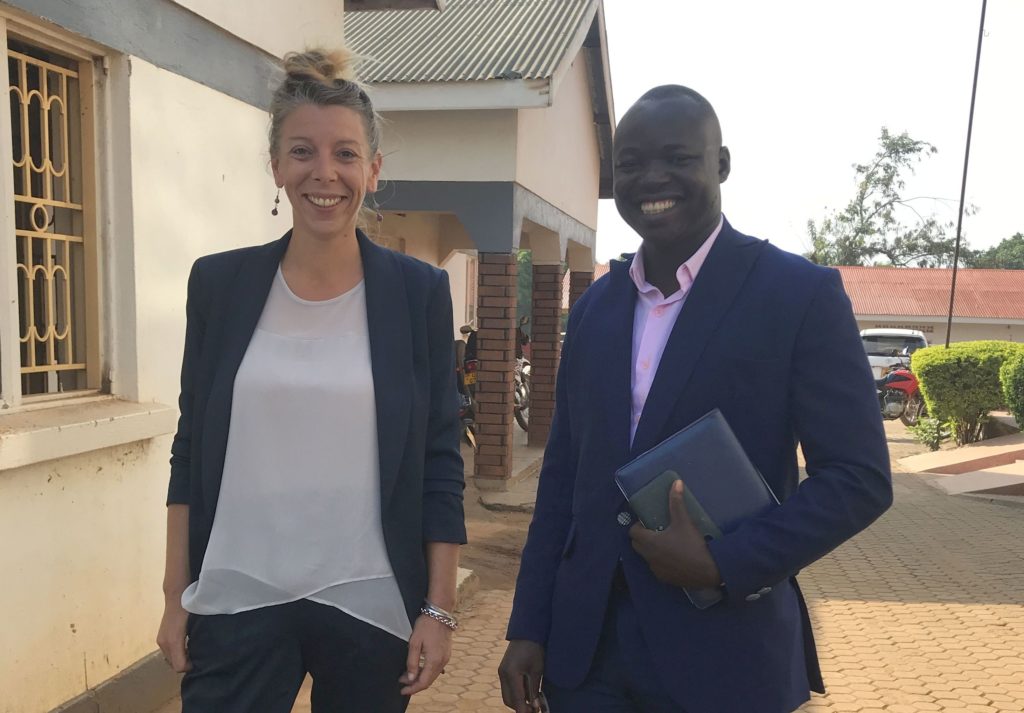
How would you describe the report process in general?
Even though I am not really a fan of writing reports, the task can be really useful when the format “forces” you to sit down and reflect on: What am I doing here? Why am I doing it? What kind of objectives have I defined? In retrospect you might find that the initial planning of some activities turns out be unrealistic or that some things work out way faster than expected. Especially the open-end questions promote self-reflection.
For my initial report, I remember one question asked us to describe the economic and socio-cultural context of our project. I ended up spending quite some weekends finding the answer to that question as events of the past still shape the sub-region today – I watched documentaries and read many texts to grasp the historical context of my project area: West Nile. I quickly realized that it is not enough to dig into the history of Uganda. West Nile is in most parts physically separated from other parts of Uganda by the river Nile and it borders the Democratic Republic of Congo and South Sudan. The history of West Nile is thus much closer linked to these countries than other parts of Uganda. In the end, I had written a very long text but for the actual report I of course summarised my answer. I am glad I invested the time though, as that way I was able to build a strong foundation for my assignment.
Did you come across any surprises or unexpected results?
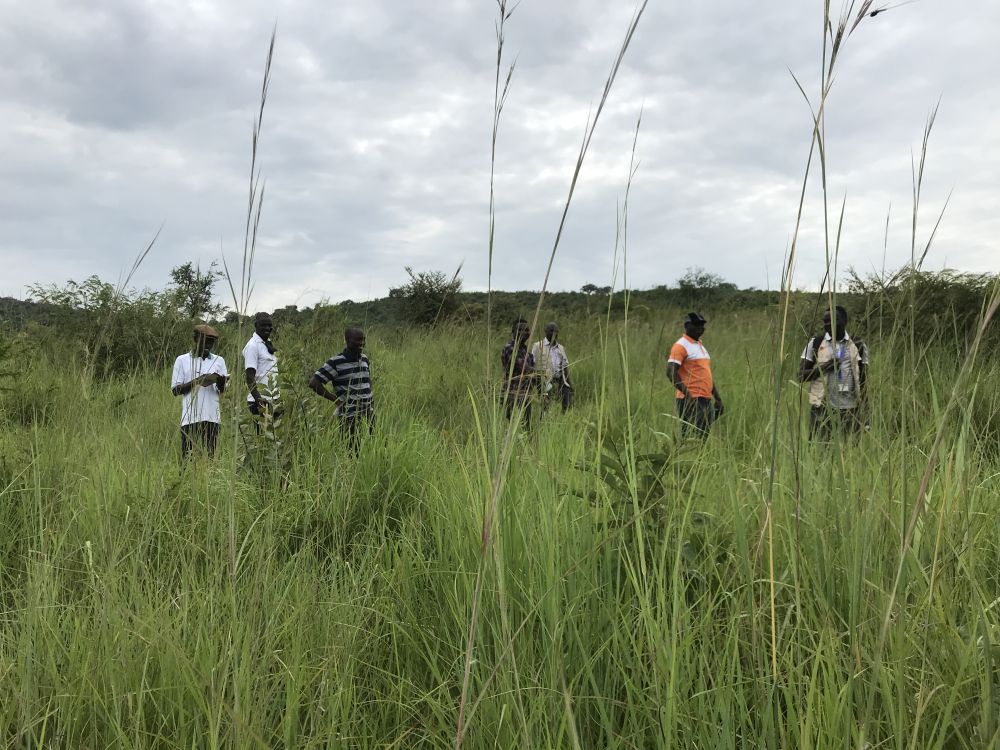
I am working with colleagues at the Agency for Accelerated Regional Development, or short, AFARD. I was informed that they are a well-run and professional organization before my departure. What I did not expect was to meet over 100 hundred colleagues, most of them from West Nile, working in four offices across the entire sub-region. Across the board my colleagues hold university degrees and are very invested seeing that they work towards improving the lives of their fellow West Nilers. Working with them is fantastic and the atmosphere in the team is great – we laugh a lot with each other and about each other!
Most of the operational things already work very well within the organization and my colleagues are quite knowledgable about their work and West Nile. I often see my role here not so much about technical knowledge transfer but about drawing attention to the bigger picture. When engaging in work very intensively, people tend to assume a tunnel vision. In these cases, it really helps having someone with an external view come in and make people change their perspectives every once in a while. To some extent donors promote this one-sided perspective by pushing for certain agendas. For instance, I am at AFARD to advice them on how to run their social enterprise West Nile Holdings Limited more effectively. But in the past, the business was mostly funded by donors and run with a development cooperation concept for NGOs. That does not work. You can’t run a business while looking at it only through NGO glasses. So what I am helping the team to do is to change perspectives and help them to put the available resources together differently.
What were your greatest learnings so far? What is it that you take away from your first year of assignment?
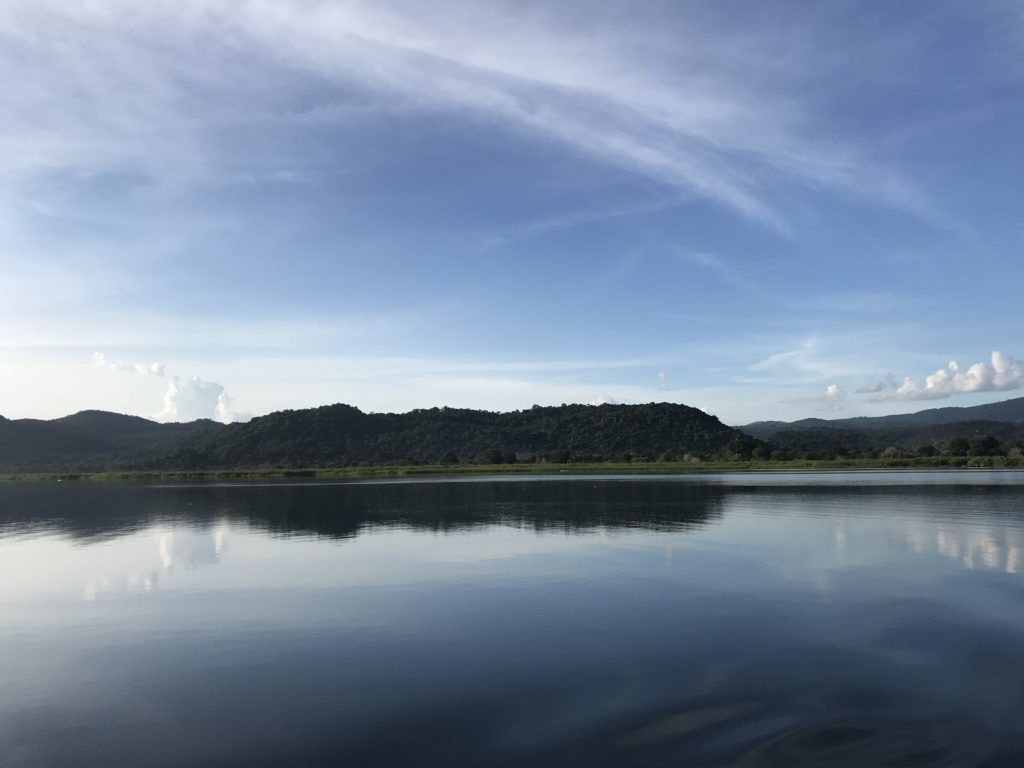
For the first important take away I have to repeat myself: You can’t run a business like you run an NGO, however successful the NGO might already be. It won’t work. That was kind of an epiphany for my colleagues, when we sat down and analysed together, why this isn’t possible, realizing why some of the past business ventures were kind of doomed to fail no matter how hard they might have worked.
The big learning for me was realizing again how much expertise is already present. West Nile has an incredible amount of natural resources and I already said that my colleagues have a wealth of knowledge, too. On top of that, many of my colleagues at AFARD also have their own small businesses. The point is: the resources are sometimes not used in the right way or there are other restrictions that restrain putting resources to good use. Past wars, terrorism and conflicts for one have played a big role but I also think that in parts this is a generational issue. In many cases businesses are still run in strict hierarchical structures that often bring themselves down by impeding creativity and positive changes. My colleague is in his early 30s and I see a lot of potential in his generation to do things differently. They should be able to do things their way without the limitations set by older generations. I really have high hopes regarding the younger generations.
I give you an example, AFARD had used a 40 acres plot of land in the past years for some horticulture production which largely failed, because the land does not support horticulture – and the young colleagues in charge knew this very well. So with me on board, we gathered some colleagues, met on the land and did a two hour assessment tour. We then sat down and I asked them to come up with their own plans – regardless of what others think and of limits on budgets. We ended up with drawings for an agroforestry-apiary-piggery farm system that makes complete sense for the land, expoits climate smart technologies and sets the farm up sustainably.
What really hurts my soul is seeing that so often in Europe the African continent gets reduced to poverty, starvation, the old power holders, who are in politics for over 30 years, corruption and wars. In Europe you will find that as well – I mean, you don’t have to look long for corruption cases and, anyway, have you heard about Viktor Orban? Yes, there were cases where people got vaccinated with water in Uganda. Four weeks after this became public the media in Germany reported about the same happening there. Europeans hear about Africa in the news (usually bad), through tourism (usually a painted rosy picture) and NGO donation campaigns (usually depicting people in destitute). I really think that NGOs have to do better in promoting other images of Africa and Africans. Mobile payments were already a big thing here before anyone in Germany started using it. Did you know Nairobi is a hub for app developments, including for the agricultural sector?
What were your personal highlights so far?
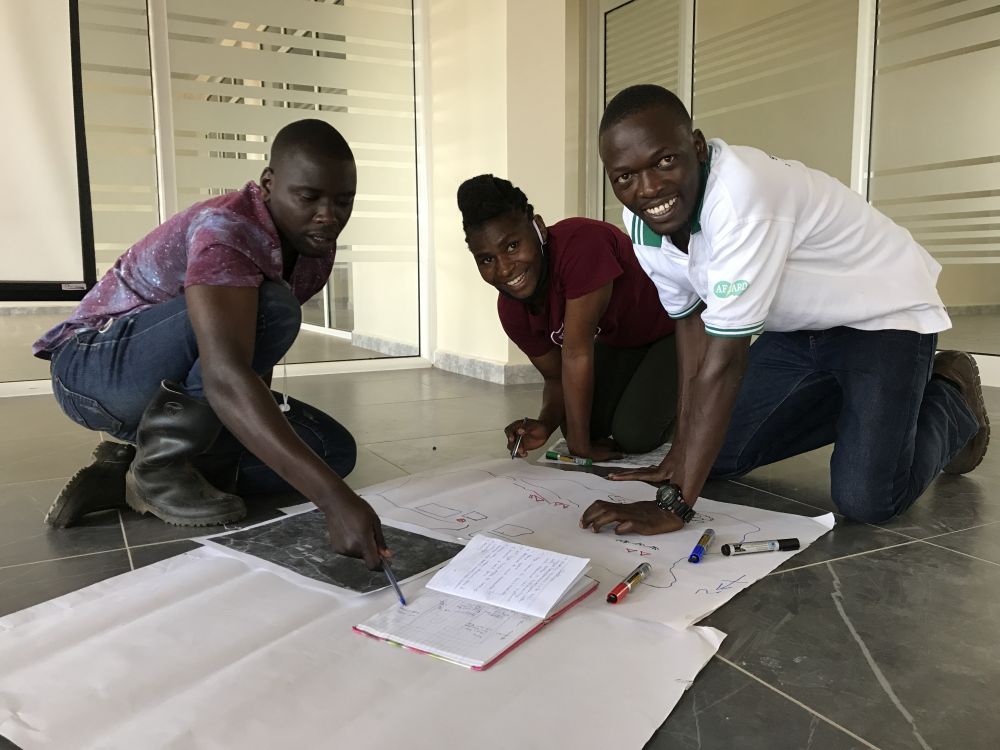
My personal highlight is certainly the team and I often leave the office feeling very happy. Of course, there are hard days as well and there are a lot of things here that are difficult to witness. But – above all – my young motivated colleagues make up for that. They have experienced armed conflicts and terrorist attacks in West Nile when they were children. They were essentially cut off from the rest of Uganda because of the activities of the Lord Resistance Army (LRA) and actions by the Ugandan military. As children some of them had to seek refuge in Congo or Sudan with their families – when it was still Sudan and not South Sudan – whilst in other years it was not safe for them to travel to see family and friends across the border. That did cost the region a lot in terms of economic development.
On the one hand, these issues are talked about in a very reflected and conscious way – to explain why things are the way they are, as I am now experiencing them to some degree too.
On the other hand, I am at times still quite shocked. For example, I recently had a conversation with a farmer who proudly told me how they are keeping up with technological progress now that they have an ox to plow their fields instead of just using shovels. In moments like that I am left speechless.
Yet, there is so much potential in this beautiful region. Whenever I travel with my colleagues I get reminded of that. I had already known other regions of Uganda before my assignment. West Nile, however, is new for me and it surprises me over and over again with its overwhelming beauty and its richness of possibilities, which might also include many farmers. I had not expected this to that extend, so that is a very positive surprise.
Is there anything else you would like to share with us?
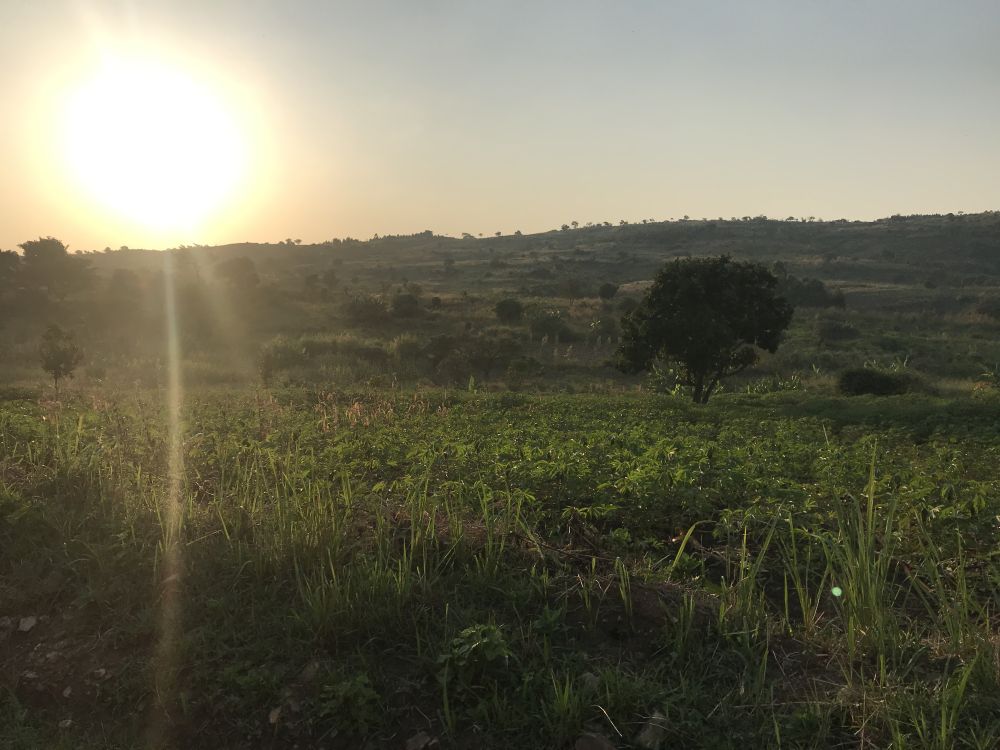
Some formats that we receive from HORIZONT3000 do not make sense for TAs working in an enterprise. I am referring to M&E indicators for instance – you don’t have those in private businesses but rather indicators and processes set by Controlling. Another question in reporting formats that does not consider the context of private businesses is the one regarding SDGs – most businesses don’t really care about them that much. Of course, there are businesses that consider SDGs especially those operating in international contexts like the garment industry or those working in the metals and palm oil sectors, but I‘d say that it is not a business indicator in general.
I would also like to add a suggestion for the public relations department of HORIZONT3000 and the knowledge management programme. From my point of view, it would be way more efficient to collect specific topics and stories from TAs, instead of asking them once in a while in general for content. Take me as an example: I don’t have any kind of experience with public relations work. My background is in applied sciences and project implementation. Scientists are not known for creating entertaining content that people enjoy consuming and it has never been a priority in what I do. So, I would rather you skip through our reports and get in touch with us with specific ideas and questions in order to collect our stories.
The scientist in me also yearns for a better contextualization of tools we use in development and to acknowledge the pioneers of their fields for their work. To explain myself a bit better: Throughout my career I have worked in different NGOs over the years and in almost all of them I have had the impression that they present the Kanban board as if they had just invented it. I mean, this tool is so old, the photos of its first usage at Toyota are still in black and white, because there was no colourfilm back then. So in my tutorial for the Kanban board I used developments in the car industry throughout the decades not only to explain why Toyota bothered inventing the tool in the first place, but also to show how changes in consumer tastes and new technologies changed the car industry and the tools it used at certain periods of time. This ties in quite nicely with our work anyway because we are all about setting up an enterprise that needs to consider consumers, newest technologies and management tools.
Lastly, while I fully understand the need for reporting about work given that our efforts are ultimately financed through donations and taxes, I sometimes wish there would also be a space for us to share what we are experiencing as private people that find themselves in very challenging assignments. Of course, we roughly know what we were getting into, when applying for the assignment, but still a professional reporting format just isn’t designed to also capture our personal experiences. Just to give you an idea: We witness people getting beaten up, we see really bad car accidents, women not being allowed to eat certain types of food, malnourished children and people just dying at a much younger age. Impressions like these do leave a mark. And this is not a problem only occurring at HORIZONT3000. I have experienced that in other NGOs as well – there is too little room for exchange on a personal level. So, I would suggest creating non-binding exchange formats. They would make a huge difference.
Very interesting insights Anne, thank you! 🙂